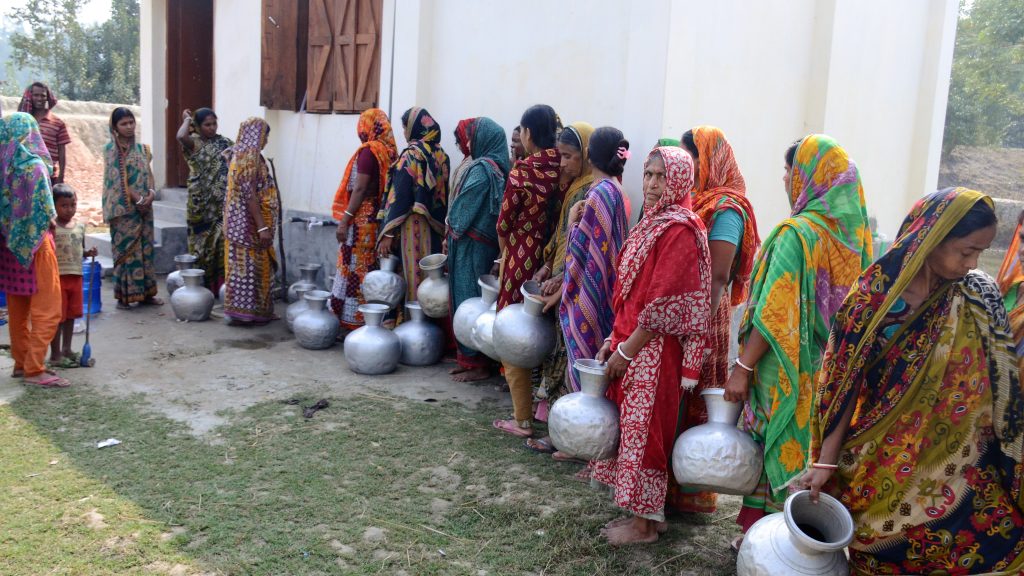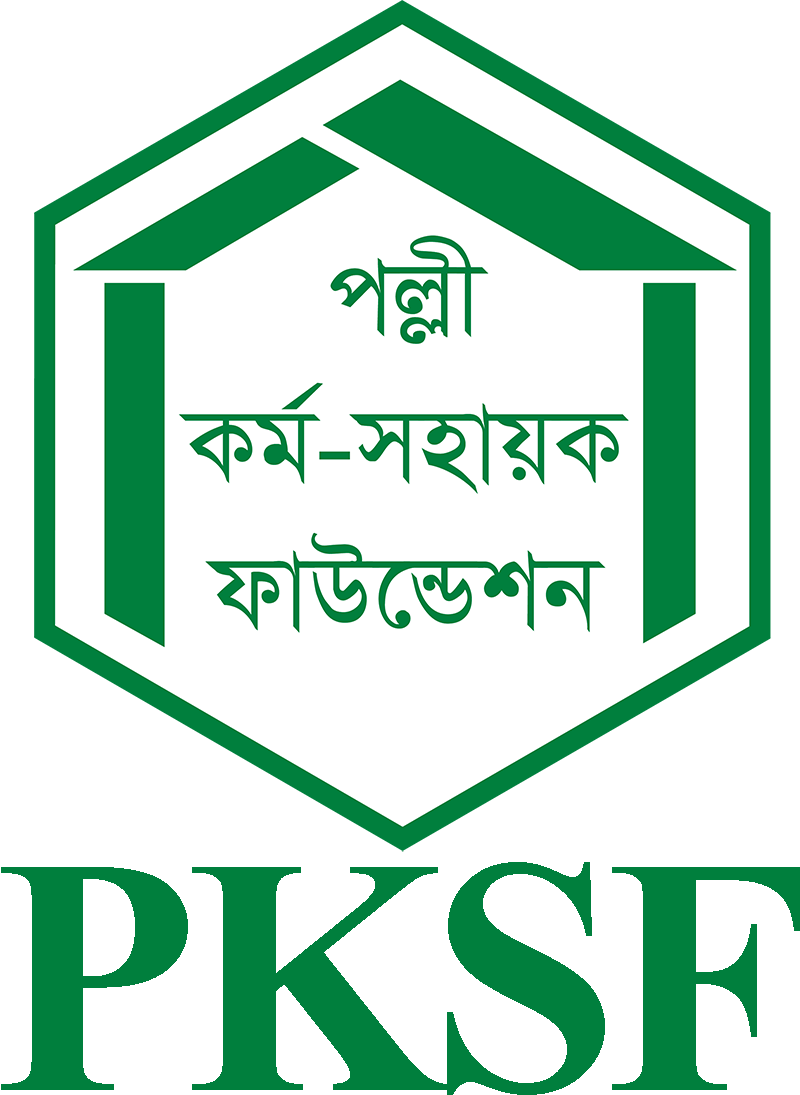Access to clean water, basic toilets, and good hygiene practices is imperative for a healthy live.
Although Bangladesh has achieved significant success in increasing access to water and sanitation in recent years, issues such as poor water quality, lack of functional water sources, unsafe sanitation, and poor hygiene behaviour, including widespread stigma around menstrual hygiene, still persist in many parts of the country.
PKSF intends to address these issues and make a lasting change in the lives of the poor through ensuring inclusive and sustainable WASH services in disadvantaged communities. Across the working areas PKSF works with local government, institutional authorities, district administration and communities to build knowledge, capacity and motivation for locally owned and driven WASH solutions that are scalable and sustainable.
Services around WASH are now a part of many PKSF programmes, but it has a dedicated programme styled Bangladesh Rural Water, Sanitation and Hygiene for Human Capital Development Project.
This project is supporting some 1,20,000 households to access safe water supply and 10,00,000 households to access hygienic sanitation facilities with funding from the World Bank Group and the Asian Infrastructure Investment Bank (AIIB).
Through various other projects, PKSF ensures safe potable water, distributes rainwater harvesting tanks and sets up Reverse Osmosis plants in climate vulnerable areas where potable water is becoming a scares commodity.

Access of low income people to finance for housing is a perpetual challenge in every country. It is more difficult in the urban areas. Lack of land tenure security and the high initial investment are the big hurdles. For financial institutions, it’s a very difficult task because of the terms and conditions permissible in matters of lending. Longer loan terms and absence of appropriate guarantee mechanisms are the main obstacles. The conventional microfinance system offers very little scope for funding in housing which relates to conventional mortgages. However, Palli Karma-Sahayak Foundation (PKSF) is presently implementing a project titled ‘Low Income Community Housing Support Project (LICHSP)’ in line with its mandate of inclusive and appropriate financing for sustainable development of people.
Separately, PKSF has since January 2019 been implementing a loan program for housing development titled ‘ABASON’ (literally meaning ‘housing’) out of its own fund to improve the living conditions of the target disadvantaged people, by extending financial and technical support to them.
The ABASON program is being implemented in 33 upazilas of 16 districts through 76 branches of 16 Partner Organizations (POs) of PKSF. As of August 2021, a total of BDT 42 crore has been disbursed among the POs that in turn have disbursed BDT 56.22 crore among 2,475 households in the field level for housing improvement (new construction, repair and extension).
